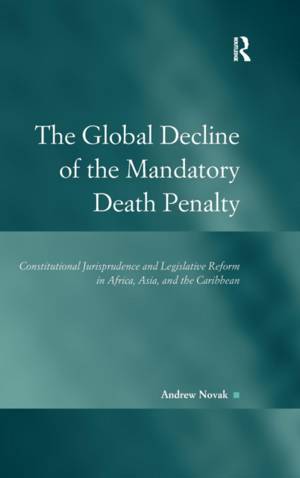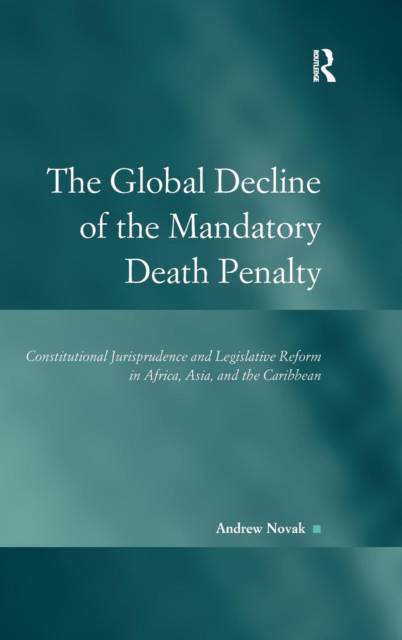
- Afhalen na 1 uur in een winkel met voorraad
- Gratis thuislevering in België vanaf € 30
- Ruim aanbod met 7 miljoen producten
- Afhalen na 1 uur in een winkel met voorraad
- Gratis thuislevering in België vanaf € 30
- Ruim aanbod met 7 miljoen producten
Zoeken
The Global Decline of the Mandatory Death Penalty
Constitutional Jurisprudence and Legislative Reform in Africa, Asia, and the Caribbean
Andrew Novak
€ 290,45
+ 580 punten
Uitvoering
Omschrijving
Historically, at English common law, the death penalty was mandatory for the crime of murder and other violent felonies. Over the last three decades, however, many former British colonies have reformed their capital punishment regimes to permit judicial sentencing discretion, including consideration of mitigating factors. Applying a comparative analysis to the law of capital punishment, Novak examines the constitutional jurisprudence and resulting legislative reform in the Caribbean, Sub-Saharan Africa, and South and Southeast Asia, focusing on the rapid retreat of the mandatory death penalty in the Commonwealth over the last thirty years. The coordinated mandatory death penalty challenges - which have had the consequence of greatly reducing the world's death row population - represent a case study of how a small group of lawyers can sponsor human rights litigation that incorporates international human rights law into domestic constitutional jurisprudence, ultimately harmonizing criminal justice regimes across borders. This book is essential reading for anyone interested in the study and development of human rights and capital punishment, as well as those exploring the contours of comparative criminal justice.
Specificaties
Betrokkenen
- Auteur(s):
- Uitgeverij:
Inhoud
- Aantal bladzijden:
- 200
- Taal:
- Engels
- Reeks:
Eigenschappen
- Productcode (EAN):
- 9781472423252
- Verschijningsdatum:
- 30/05/2014
- Uitvoering:
- Hardcover
- Formaat:
- Genaaid
- Afmetingen:
- 156 mm x 234 mm
- Gewicht:
- 458 g

Alleen bij Standaard Boekhandel
+ 580 punten op je klantenkaart van Standaard Boekhandel
Beoordelingen
We publiceren alleen reviews die voldoen aan de voorwaarden voor reviews. Bekijk onze voorwaarden voor reviews.











